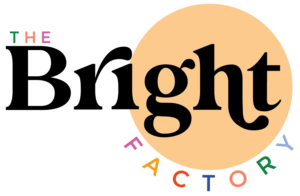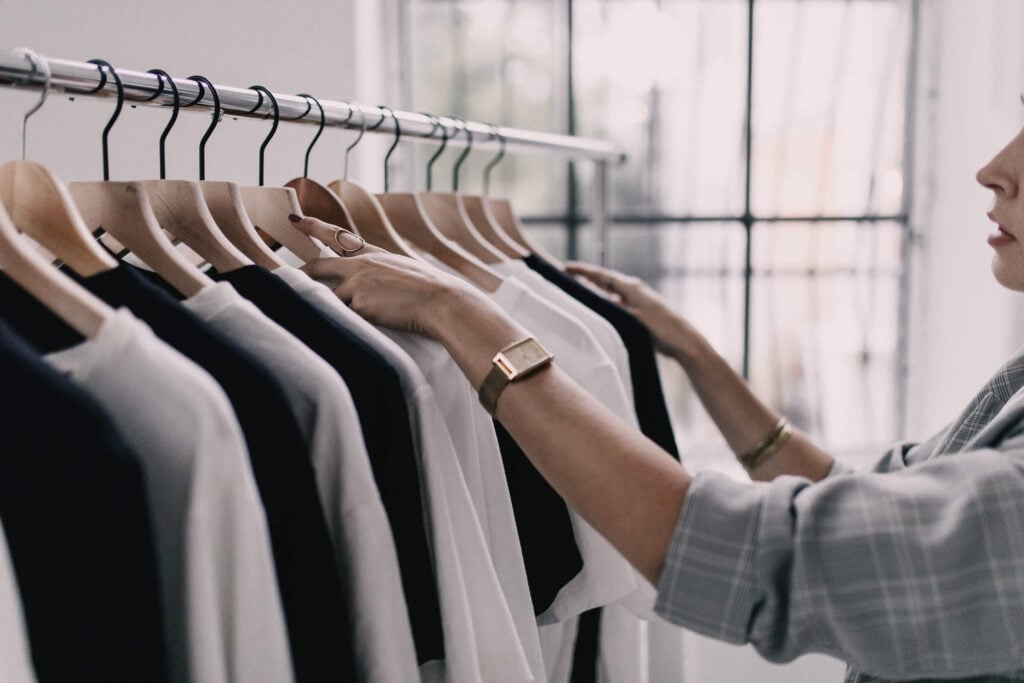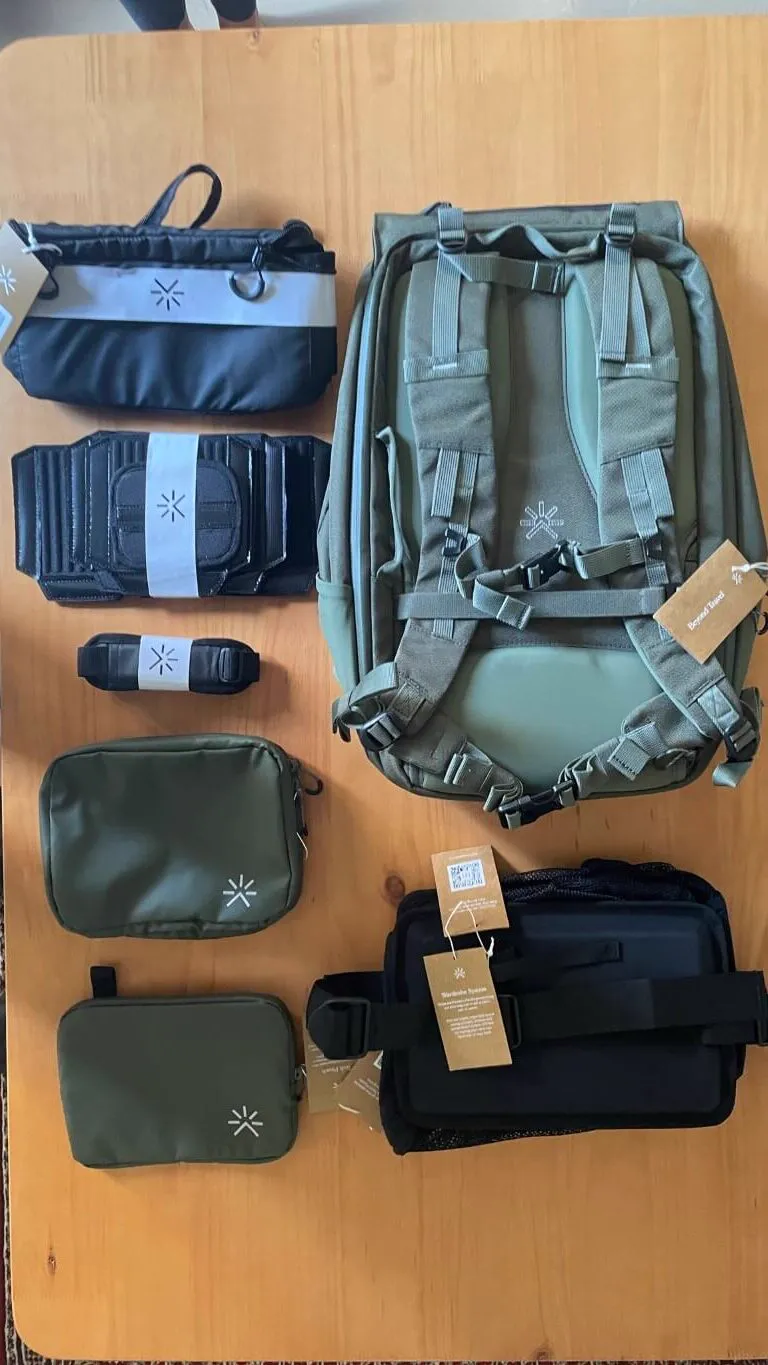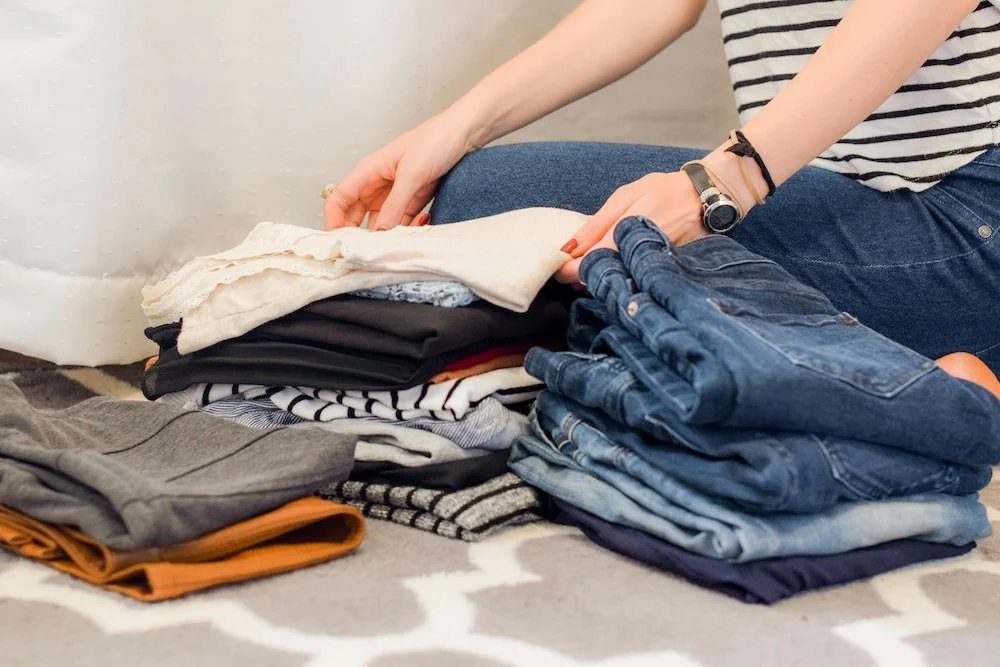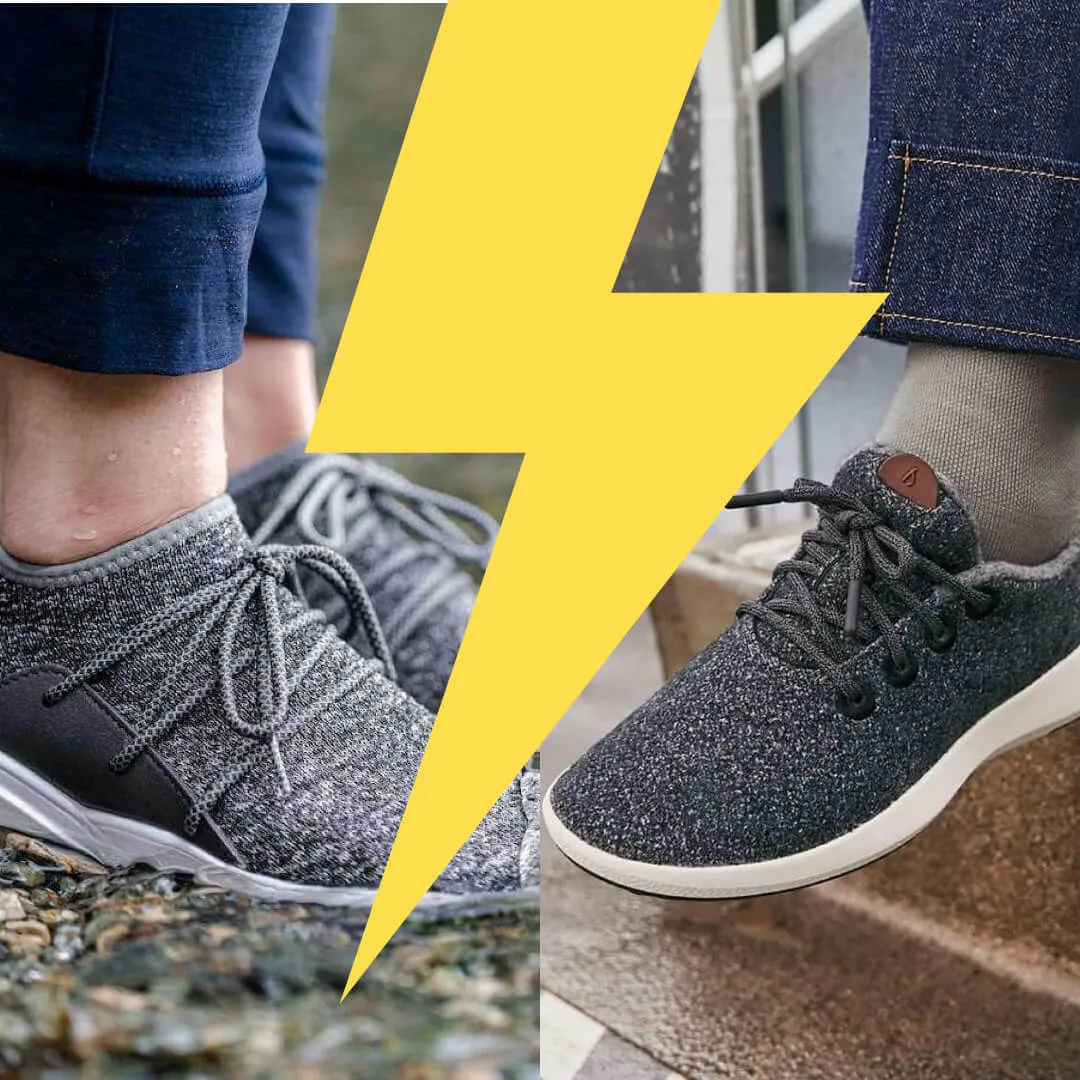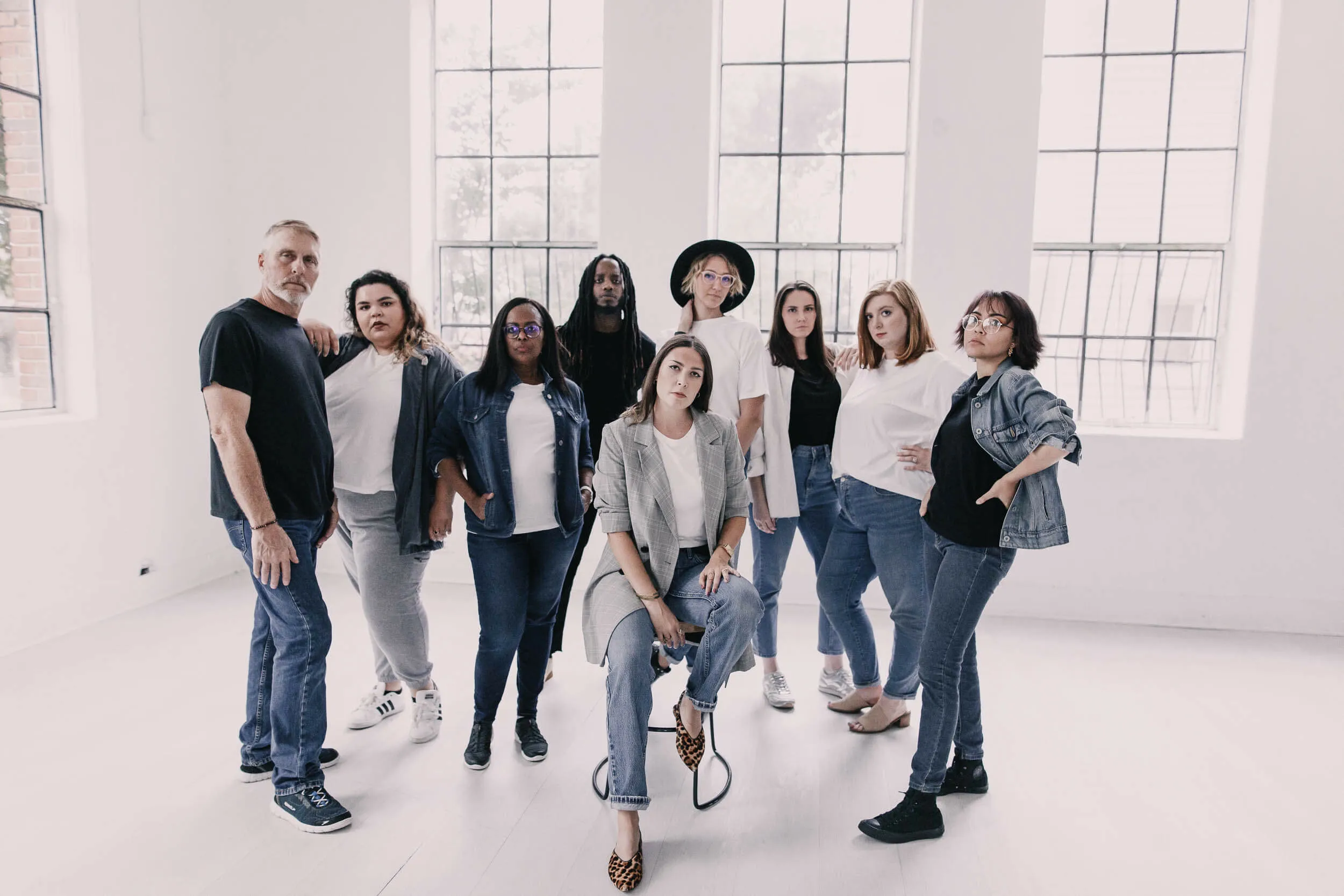
How The Bright Factory Is Taking On The Daunting Task Of Starting an Ethical T-shirt Factory
*This week we catch up with Meghan Forest Farmer, founder of The Bright Factory. *
She talked to us about her plans to start an ethical T-shirt factory in Fort Worth, Texas, and how she wants to transform the lives of formerly incarcerated women looking for a brighter future.
You can check out and support their Kickstarter campaign which is currently live here.
Hello! Who are you and what does your company do?
Meghan Forest Farmer here, founder of The Bright Factory, and believer that you can carry justice and joy at the same time.
The Bright Factory will create T-shirts at our cut & sew factory in Fort Worth, TX, made with sustainable materials, and by the hands of formerly incarcerated women, being given another chance.
What is the ethos behind The Bright Factory? What inspired you to start the company?
At our core, we believe in restoring dignity, both to the garment worker position and to formerly incarcerated women, through disrupting the unhealthy norms within garment manufacturing and reentry experiences.
BUT, we do this with hope, joy, and the belief that brighter days are ahead.
The idea for The Bright Factory came at the intersection of several paths in my life.
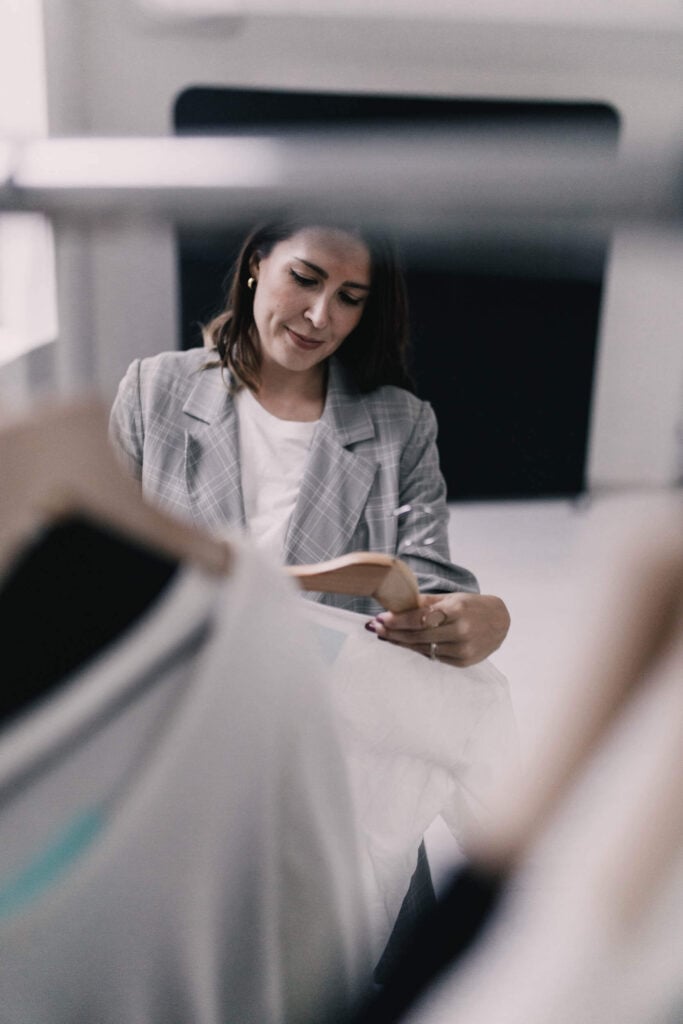 I worked in the fashion industry for over a decade in various areas of the fashion pipeline. I’ve been a part of the glitz and glamour. But, I also became aware of the unfortunate, darker underside of the fashion industry.
I worked in the fashion industry for over a decade in various areas of the fashion pipeline. I’ve been a part of the glitz and glamour. But, I also became aware of the unfortunate, darker underside of the fashion industry.
The tragedy at Rana Plaza in 2013 was the moment that changed me. I chose to stop turning a blind eye, and I educated myself about manufacturing, supply chains, and sustainability.
While this was swirling through my brain, I began working with a volunteer organization visiting incarcerated women in Fort Worth, TX. At every visit, I heard the same sentiment. Each woman hoped to get out, start a new life, take care of her children, and get a good job. But I soon learned that finding dignified work after incarceration is bleak, making it more likely they will return behind bars because of the obstacles in place for those with a conviction on their record.
That’s when the connection came - the human connection. And so The Bright Factory began to come to life.
**How have your past experiences in the fashion **industry influenced your decisions at The Bright Factory?
I’ve worked in retail stores, wholesale showrooms, runway shows, and on photoshoot sets, and much of my career has been a wonderful and thrilling experience.
However, when I began to question where my clothes came from, who made them and educated myself on the horrible history and current state of garment worker exploitation, I could no longer look past the façade the fashion industry was putting up.
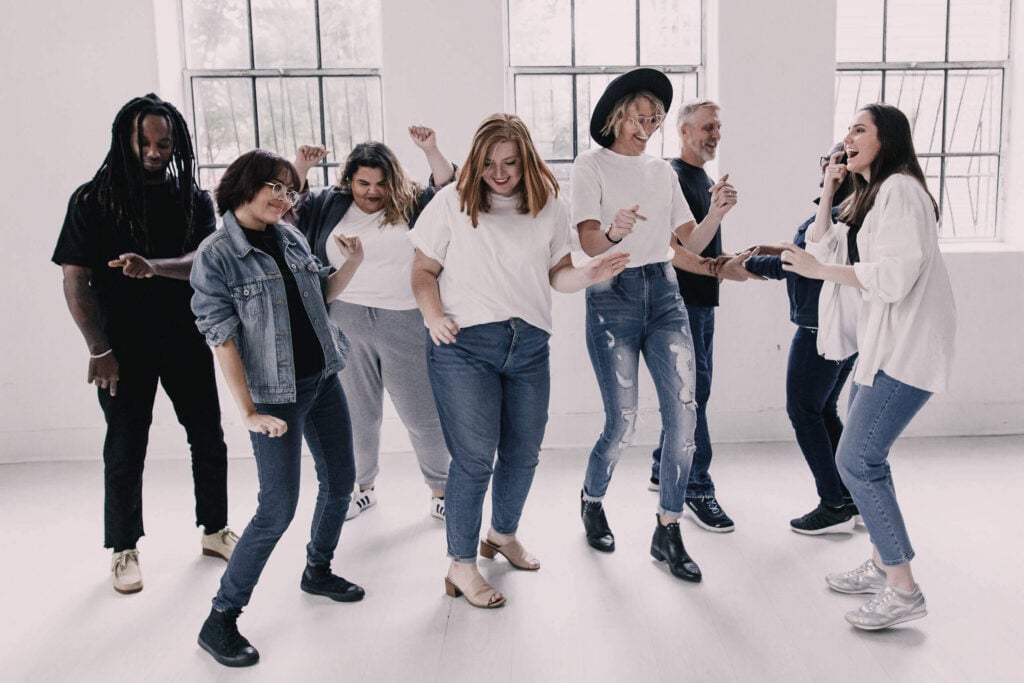 Like many of us, I started my sustainability journey one step at a time, just for my own life. As I learned more and would chat about sustainable fashion with friends or co-workers, I realized that many folks found ethical fashion interesting and were curious but didn’t want to make time to do the research or make efforts. Out of this need, I started a personal styling business to help women determine their style AND approach their closet more sustainably.
Like many of us, I started my sustainability journey one step at a time, just for my own life. As I learned more and would chat about sustainable fashion with friends or co-workers, I realized that many folks found ethical fashion interesting and were curious but didn’t want to make time to do the research or make efforts. Out of this need, I started a personal styling business to help women determine their style AND approach their closet more sustainably.
My research and a better understanding of ethical fashion and my connections in the sustainable fashion space have prepared and paved the way for The Bright Factory.
What is the biggest challenge you’ve faced while starting The Bright Factory?
I am an editorial and wardrobe fashion stylist with no manufacturing background; that sentence could probably sum up our challenges most days! Joking aside, learning a whole new vein of the fashion industry is complicated.
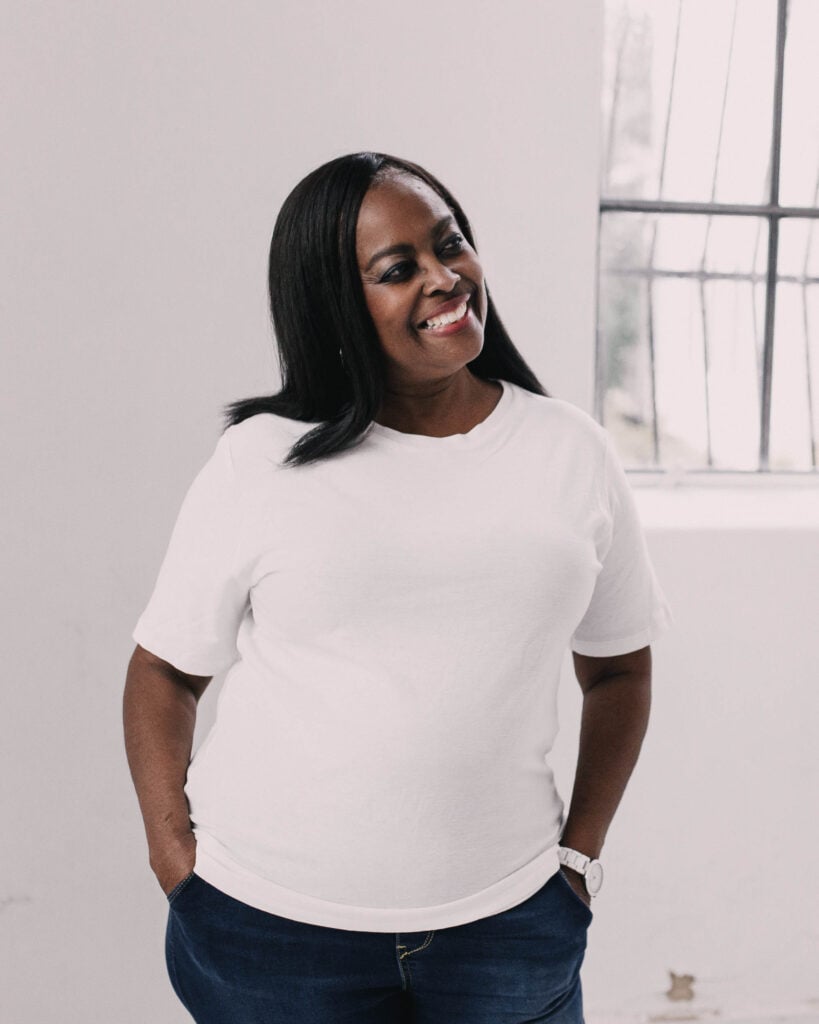
It quickly became obvious why most people we know are not trying to start garment factories. The information available about garment manufacturing is not as accessible as perhaps other businesses. However, sustainable brands, small factory owners in the U.S., and leaders in the ethical fashion space have been incredible resources and extremely generous to share their wisdom and expertise with me.
They have often restored my hope that we CAN do this and we SHOULD do this. They have assured me of why we should do it, and although, yes, it will be challenging, it is important. I am eternally grateful for their encouragement and wisdom.
You are raising funds to get The Bright Factory up and running. Can you tell us more about this and how the funding will help your business get off the ground?
As one can imagine, the equipment and initial capital needed to run a fully operational garment factory are not exactly cheap. But because the Bright Factory team and I believe that this factory and its mission are far bigger than me as a founder, we know the extreme value of bringing others into the process with us.
We are running a Kickstarter campaign, September 1st-30th, because it allows others to say “Yes” to what we believe The Bright Factory will be and do. Having the support of our local community, sustainable brands, and domestic businesses is invaluable.
By receiving an initial injection of financial support, we can begin to set up safely, efficiently, and with the proper equipment. We want to partner with others so we can “Yes” together:
Yes, to restoring dignity. Yes, to forcing fashion to do better. Yes, to making things simple and transparent. Yes, to using sustainable materials Yes, to returning some manufacturing to the U.S. Yes, to disrupting an industry.
Can you tell us more about the manufacturing process and materials that will make the sustainable T-shirts you produce?
We chose to focus solely on the product category of t-shirts for a few reasons:
- We wanted to create a product that could lead to early mastery for our amazing women sewers, who will most likely not be from an industrial sewing background. By focusing on just three t-shirt styles, we can ensure they feel confident and comfortable creating the t-shirts after they complete the training program.
- If we create jobs to employ women who are traditionally looked over and whose job applications are passed by, we want to make a product that will keep them in jobs. Historically, t-shirts are always a “needed” fashion product, and only a handful of companies ethically manufacturing wholesale blanks also have a transparent supply chain. We hope to be the wholesale blank t-shirt that every small business wants to print its logo or design. If it’s a product that is going to be made regardless, let’s do it better!
The very nature of making a new garment on this planet is not sustainable, and we are aware of that. So, if we are going to create something new, you best believe it will be able to return to the earth and decompose one day.
Our t-shirts are made from organic cotton, grown in Texas, and milled in North Carolina, giving us the ability to maintain a transparent supply chain.
What does the future look like for The Bright Factory?
The future looks BRIGHT. But truly, we have HUGE goals and dreams for the future; growing our hemp for fabrics, implementing composting on-site of our factory grounds, incentivized t-shirt recycling programs, and disco dance parties every Friday… to name a few.
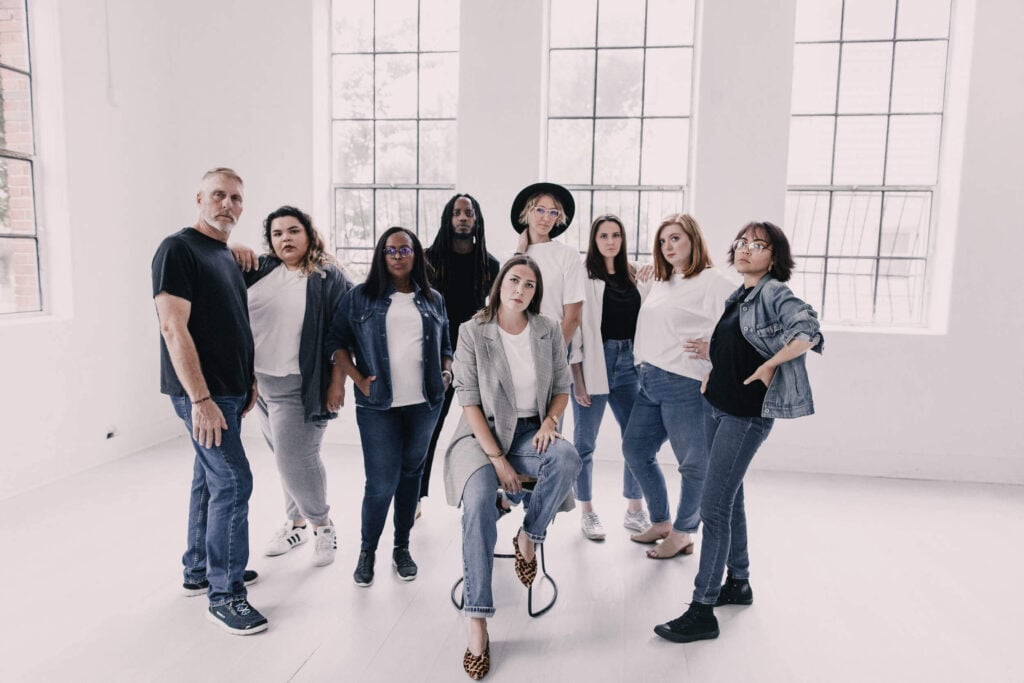
However, we have to put one foot in front of the other right now and get our funding completed, factory setup and start training our incoming employees intentionally. Our near future is all about getting started and creating a trauma-informed environment for the extraordinary ladies we will employ. We intend to implement an extensive training program, allowing our employees to feel equipped and ready for their new role. We also plan to provide transferable skills training so while our future employees are with us, they build their confidence and resume.
We are full of hope and a healthy amount of desire to shake things up in the garment manufacturing world.
Wrapping Up
We hope you enjoyed this week’s interview, if you want to check out more information about The Bright Factory, and how you can support them in their Kickstarter campaign, click the link below!

